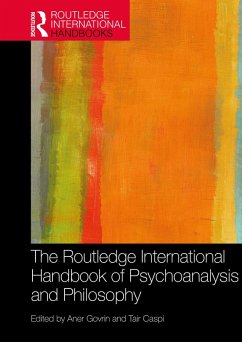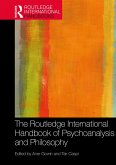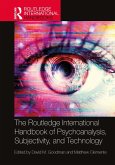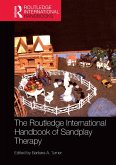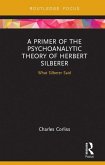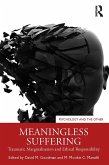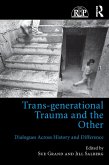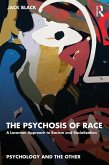The Routledge International Handbook of Psychoanalysis and Philosophy (eBook, ePUB)
Redaktion: Govrin, Aner; Caspi, Tair
45,95 €
45,95 €
inkl. MwSt.
Sofort per Download lieferbar

23 °P sammeln
45,95 €
Als Download kaufen

45,95 €
inkl. MwSt.
Sofort per Download lieferbar

23 °P sammeln
Jetzt verschenken
Alle Infos zum eBook verschenken
45,95 €
inkl. MwSt.
Sofort per Download lieferbar
Alle Infos zum eBook verschenken

23 °P sammeln
The Routledge International Handbook of Psychoanalysis and Philosophy (eBook, ePUB)
Redaktion: Govrin, Aner; Caspi, Tair
- Format: ePub
- Merkliste
- Auf die Merkliste
- Bewerten Bewerten
- Teilen
- Produkt teilen
- Produkterinnerung
- Produkterinnerung

Bitte loggen Sie sich zunächst in Ihr Kundenkonto ein oder registrieren Sie sich bei
bücher.de, um das eBook-Abo tolino select nutzen zu können.
Hier können Sie sich einloggen
Hier können Sie sich einloggen
Sie sind bereits eingeloggt. Klicken Sie auf 2. tolino select Abo, um fortzufahren.

Bitte loggen Sie sich zunächst in Ihr Kundenkonto ein oder registrieren Sie sich bei bücher.de, um das eBook-Abo tolino select nutzen zu können.
The Routledge International Handbook of Psychoanalysis and Philosophy provides a rich panoramic view of what philosophy offers or disturbs in psychoanalysis and what it represents for psychoanalytic theory and practice.
- Geräte: eReader
- mit Kopierschutz
- eBook Hilfe
Andere Kunden interessierten sich auch für
![The Routledge International Handbook of Psychoanalysis and Philosophy (eBook, PDF) The Routledge International Handbook of Psychoanalysis and Philosophy (eBook, PDF)]() The Routledge International Handbook of Psychoanalysis and Philosophy (eBook, PDF)45,95 €
The Routledge International Handbook of Psychoanalysis and Philosophy (eBook, PDF)45,95 €![The Routledge International Handbook of Psychoanalysis, Subjectivity, and Technology (eBook, ePUB) The Routledge International Handbook of Psychoanalysis, Subjectivity, and Technology (eBook, ePUB)]() The Routledge International Handbook of Psychoanalysis, Subjectivity, and Technology (eBook, ePUB)45,95 €
The Routledge International Handbook of Psychoanalysis, Subjectivity, and Technology (eBook, ePUB)45,95 €![The Routledge International Handbook of Sandplay Therapy (eBook, ePUB) The Routledge International Handbook of Sandplay Therapy (eBook, ePUB)]() The Routledge International Handbook of Sandplay Therapy (eBook, ePUB)45,95 €
The Routledge International Handbook of Sandplay Therapy (eBook, ePUB)45,95 €![A Primer of the Psychoanalytic Theory of Herbert Silberer (eBook, ePUB) A Primer of the Psychoanalytic Theory of Herbert Silberer (eBook, ePUB)]() Charles CorlissA Primer of the Psychoanalytic Theory of Herbert Silberer (eBook, ePUB)21,95 €
Charles CorlissA Primer of the Psychoanalytic Theory of Herbert Silberer (eBook, ePUB)21,95 €![Meaningless Suffering (eBook, ePUB) Meaningless Suffering (eBook, ePUB)]() Meaningless Suffering (eBook, ePUB)33,95 €
Meaningless Suffering (eBook, ePUB)33,95 €![Trans-generational Trauma and the Other (eBook, ePUB) Trans-generational Trauma and the Other (eBook, ePUB)]() Trans-generational Trauma and the Other (eBook, ePUB)38,95 €
Trans-generational Trauma and the Other (eBook, ePUB)38,95 €![The Psychosis of Race (eBook, ePUB) The Psychosis of Race (eBook, ePUB)]() Jack BlackThe Psychosis of Race (eBook, ePUB)33,95 €
Jack BlackThe Psychosis of Race (eBook, ePUB)33,95 €-
-
-
The Routledge International Handbook of Psychoanalysis and Philosophy provides a rich panoramic view of what philosophy offers or disturbs in psychoanalysis and what it represents for psychoanalytic theory and practice.
Dieser Download kann aus rechtlichen Gründen nur mit Rechnungsadresse in A, B, BG, CY, CZ, D, DK, EW, E, FIN, F, GR, HR, H, IRL, I, LT, L, LR, M, NL, PL, P, R, S, SLO, SK ausgeliefert werden.
Produktdetails
- Produktdetails
- Verlag: Taylor & Francis eBooks
- Seitenzahl: 576
- Erscheinungstermin: 25. November 2022
- Englisch
- ISBN-13: 9781000773156
- Artikelnr.: 66002085
- Verlag: Taylor & Francis eBooks
- Seitenzahl: 576
- Erscheinungstermin: 25. November 2022
- Englisch
- ISBN-13: 9781000773156
- Artikelnr.: 66002085
- Herstellerkennzeichnung Die Herstellerinformationen sind derzeit nicht verfügbar.
Aner Govrin is a psychoanalyst, clinical psychologist and philosopher. He is director of the academic doctoral program in Psychoanalysis and Hermeneutics at Bar Ilan University, Israel and has a private practice in Tel Aviv. He is a member of the Tel Aviv Institute for Contemporary Psychoanalysis. Tair Caspi, Ph.D. is a senior clinical psychologist, and lecturer in the doctoral program of Hermeneutics and Cultural Studies, Psychoanalysis and Hermeneutics track, Bar-Ilan University. She is an associate editor of the Routledge Introductions to Contemporary Psychoanalysis series.
Part One: Philosophical systems and psychoanalysis. Kant and
psychoanalysis. Hegel and psychoanalysis. Nietzsche and psychoanalysis.
Wittgenstein and psychoanalysis. Heidegger and psychoanalysis. Derrida and
psychoanalysis.
Part Two: Psychoanalytic schools and their philosophical perspectives.
Psychoanalytic schools. Freud and philosophy. The philosophy of classical
psychoanalysis. The philosophy of Melanie Klein. The philosophy of Wilfred
Bion. The philosophy of ego psychology. The philosophy of Donald Winnicott.
The philosophy of self-psychology. The philosophy of
intersubjective/interpersonal/relational. The philosophy of Lacan. The
philosophy of Jung.
Part Three: Philosophical debates. How did the meaning of truth change
throughout psychoanalytic history? What does it mean to know that something
is true? What are the truths that psychoanalysis relates to and that relate
to psychoanalysis? How did postmodern relativism and its intellectual
pluralism influence psychoanalytic theory, technique and discourse? What is
the current scientific status of psychoanalysis? How do philosophy and
psychoanalysis inform each other regarding theories of mind, common sense
psychology, meaning, consciousness, subjectivity, irrationality,
intentionality, will, dreams and emotions? Is speech primarily a medium of
psychoanalysis or a mechanism that participates in therapeutic action? What
is the relation between trauma and language? Can poetry reveal the action
of the verbal therapeutic process? What is the role of metaphoric thought
in psychoanalytic discourse? How psychoanalytic theory influences moral
philosophy through concepts such as moral authenticity, emotions and
agency. The maintenance of boundaries in psychoanalytic encounter. Studying
professional ethics in a psychoanalytic institute. The commitment to
observing and processing countertransference as a major ethical obligation
in psychoanalytic practice. Ethical obligations of psychoanalytic
institutes to candidates and students. The "ethical turn" and
phenomenological intersubjectivity. Witnessing as a distinct function of
the therapist and as a curative element in psychoanalytic treatment.
Part Four: Applied subjects. Colonialism. Postcolonialism. The Primitive in
Freud's Anthropological Texts. Racism. Franz Fanon. Anti-Semitism.
psychoanalysis. Hegel and psychoanalysis. Nietzsche and psychoanalysis.
Wittgenstein and psychoanalysis. Heidegger and psychoanalysis. Derrida and
psychoanalysis.
Part Two: Psychoanalytic schools and their philosophical perspectives.
Psychoanalytic schools. Freud and philosophy. The philosophy of classical
psychoanalysis. The philosophy of Melanie Klein. The philosophy of Wilfred
Bion. The philosophy of ego psychology. The philosophy of Donald Winnicott.
The philosophy of self-psychology. The philosophy of
intersubjective/interpersonal/relational. The philosophy of Lacan. The
philosophy of Jung.
Part Three: Philosophical debates. How did the meaning of truth change
throughout psychoanalytic history? What does it mean to know that something
is true? What are the truths that psychoanalysis relates to and that relate
to psychoanalysis? How did postmodern relativism and its intellectual
pluralism influence psychoanalytic theory, technique and discourse? What is
the current scientific status of psychoanalysis? How do philosophy and
psychoanalysis inform each other regarding theories of mind, common sense
psychology, meaning, consciousness, subjectivity, irrationality,
intentionality, will, dreams and emotions? Is speech primarily a medium of
psychoanalysis or a mechanism that participates in therapeutic action? What
is the relation between trauma and language? Can poetry reveal the action
of the verbal therapeutic process? What is the role of metaphoric thought
in psychoanalytic discourse? How psychoanalytic theory influences moral
philosophy through concepts such as moral authenticity, emotions and
agency. The maintenance of boundaries in psychoanalytic encounter. Studying
professional ethics in a psychoanalytic institute. The commitment to
observing and processing countertransference as a major ethical obligation
in psychoanalytic practice. Ethical obligations of psychoanalytic
institutes to candidates and students. The "ethical turn" and
phenomenological intersubjectivity. Witnessing as a distinct function of
the therapist and as a curative element in psychoanalytic treatment.
Part Four: Applied subjects. Colonialism. Postcolonialism. The Primitive in
Freud's Anthropological Texts. Racism. Franz Fanon. Anti-Semitism.
Part One: Philosophical systems and psychoanalysis. Kant and
psychoanalysis. Hegel and psychoanalysis. Nietzsche and psychoanalysis.
Wittgenstein and psychoanalysis. Heidegger and psychoanalysis. Derrida and
psychoanalysis.
Part Two: Psychoanalytic schools and their philosophical perspectives.
Psychoanalytic schools. Freud and philosophy. The philosophy of classical
psychoanalysis. The philosophy of Melanie Klein. The philosophy of Wilfred
Bion. The philosophy of ego psychology. The philosophy of Donald Winnicott.
The philosophy of self-psychology. The philosophy of
intersubjective/interpersonal/relational. The philosophy of Lacan. The
philosophy of Jung.
Part Three: Philosophical debates. How did the meaning of truth change
throughout psychoanalytic history? What does it mean to know that something
is true? What are the truths that psychoanalysis relates to and that relate
to psychoanalysis? How did postmodern relativism and its intellectual
pluralism influence psychoanalytic theory, technique and discourse? What is
the current scientific status of psychoanalysis? How do philosophy and
psychoanalysis inform each other regarding theories of mind, common sense
psychology, meaning, consciousness, subjectivity, irrationality,
intentionality, will, dreams and emotions? Is speech primarily a medium of
psychoanalysis or a mechanism that participates in therapeutic action? What
is the relation between trauma and language? Can poetry reveal the action
of the verbal therapeutic process? What is the role of metaphoric thought
in psychoanalytic discourse? How psychoanalytic theory influences moral
philosophy through concepts such as moral authenticity, emotions and
agency. The maintenance of boundaries in psychoanalytic encounter. Studying
professional ethics in a psychoanalytic institute. The commitment to
observing and processing countertransference as a major ethical obligation
in psychoanalytic practice. Ethical obligations of psychoanalytic
institutes to candidates and students. The "ethical turn" and
phenomenological intersubjectivity. Witnessing as a distinct function of
the therapist and as a curative element in psychoanalytic treatment.
Part Four: Applied subjects. Colonialism. Postcolonialism. The Primitive in
Freud's Anthropological Texts. Racism. Franz Fanon. Anti-Semitism.
psychoanalysis. Hegel and psychoanalysis. Nietzsche and psychoanalysis.
Wittgenstein and psychoanalysis. Heidegger and psychoanalysis. Derrida and
psychoanalysis.
Part Two: Psychoanalytic schools and their philosophical perspectives.
Psychoanalytic schools. Freud and philosophy. The philosophy of classical
psychoanalysis. The philosophy of Melanie Klein. The philosophy of Wilfred
Bion. The philosophy of ego psychology. The philosophy of Donald Winnicott.
The philosophy of self-psychology. The philosophy of
intersubjective/interpersonal/relational. The philosophy of Lacan. The
philosophy of Jung.
Part Three: Philosophical debates. How did the meaning of truth change
throughout psychoanalytic history? What does it mean to know that something
is true? What are the truths that psychoanalysis relates to and that relate
to psychoanalysis? How did postmodern relativism and its intellectual
pluralism influence psychoanalytic theory, technique and discourse? What is
the current scientific status of psychoanalysis? How do philosophy and
psychoanalysis inform each other regarding theories of mind, common sense
psychology, meaning, consciousness, subjectivity, irrationality,
intentionality, will, dreams and emotions? Is speech primarily a medium of
psychoanalysis or a mechanism that participates in therapeutic action? What
is the relation between trauma and language? Can poetry reveal the action
of the verbal therapeutic process? What is the role of metaphoric thought
in psychoanalytic discourse? How psychoanalytic theory influences moral
philosophy through concepts such as moral authenticity, emotions and
agency. The maintenance of boundaries in psychoanalytic encounter. Studying
professional ethics in a psychoanalytic institute. The commitment to
observing and processing countertransference as a major ethical obligation
in psychoanalytic practice. Ethical obligations of psychoanalytic
institutes to candidates and students. The "ethical turn" and
phenomenological intersubjectivity. Witnessing as a distinct function of
the therapist and as a curative element in psychoanalytic treatment.
Part Four: Applied subjects. Colonialism. Postcolonialism. The Primitive in
Freud's Anthropological Texts. Racism. Franz Fanon. Anti-Semitism.
